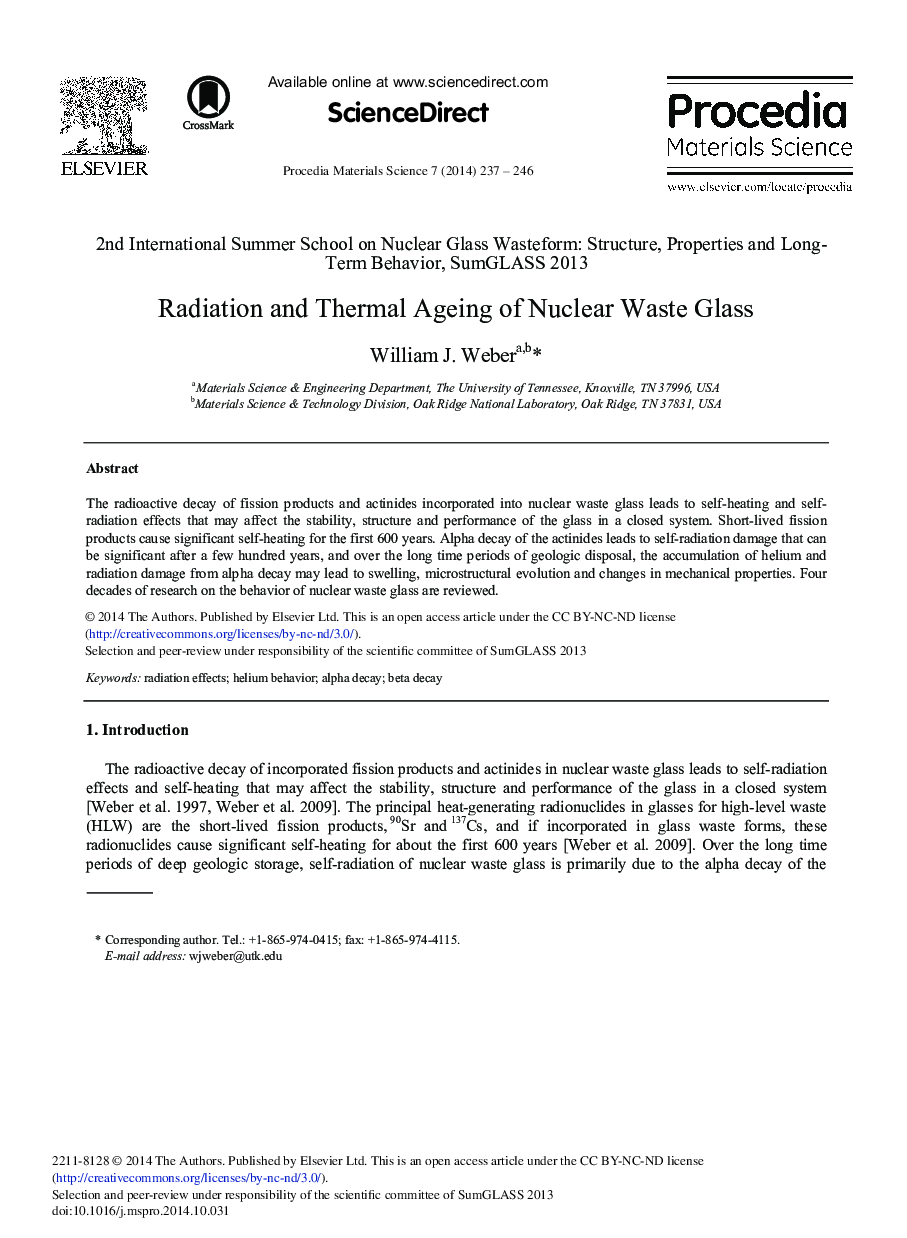| Article ID | Journal | Published Year | Pages | File Type |
|---|---|---|---|---|
| 1634247 | Procedia Materials Science | 2014 | 10 Pages |
Abstract
The radioactive decay of fission products and actinides incorporated into nuclear waste glass leads to self-heating and self-radiation effects that may affect the stability, structure and performance of the glass in a closed system. Short-lived fission products cause significant self-heating for the first 600 years. Alpha decay of the actinides leads to self-radiation damage that can be significant after a few hundred years, and over the long time periods of geologic disposal, the accumulation of helium and radiation damage from alpha decay may lead to swelling, microstructural evolution and changes in mechanical properties. Four decades of research on the behavior of nuclear waste glass are reviewed.
Related Topics
Physical Sciences and Engineering
Materials Science
Metals and Alloys
